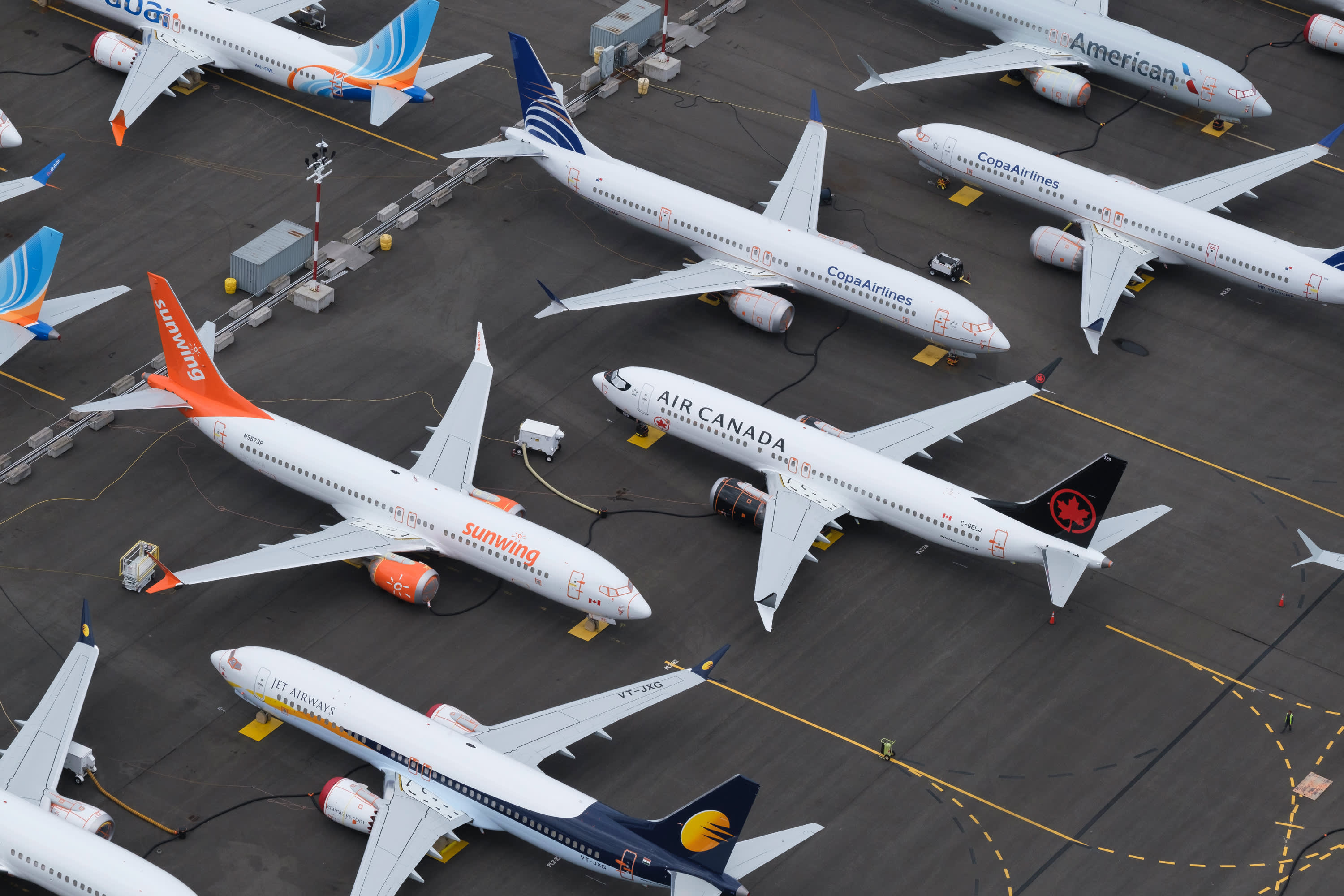Products You May Like
Boeing 737 MAX airplanes are stored in an area adjacent to Boeing Field, on June 27, 2019 in Seattle, Washington.
Stephen Brashear | Getty Images
Boeing shares continued their slide on Monday after explosive messages last week revealed a top pilot had concerns about a system on the 737 Max that was later implicated in two fatal crashes.
Several Wall Street analysts downgraded Boeing, fretting about the fallout from the crisis that has barred the manufacturer from delivering its best-selling planes that make up around 40% of its profit.
Boeing’s stock was down more than 4% Monday morning, trading at a two-month low and shaving more than 100 points off the Dow Jones Industrial Average.
The messages made public on Friday included an exchange from a top Boeing pilot to a colleague in 2016 that expressed his worries about an aggressive flight-control system on the Max, whose performance he called “egregious.” The pilot, who now works for Southwest, said in the exchange that he “unknowingly” lied to regulators. That same pilot months later told the FAA to remove the system, known as MCAS, from pilot procedures and training materials.
The FAA said Boeing knew about the messages for months and scolded Boeing in a letter for not releasing the documents earlier. Boeing defended its training materials for the 737 Max, which regulators deemed safe in 2017, and said it told regulators on “multiple occasions” about the broadened capabilities of the now-questioned system.
UBS on Monday downgraded Boeing to a “neutral” rating from “buy.”
“Our working thesis has been that the failures on the 737 Max development by the company centered on fault intolerant design compounded by poor assumptions of pilot response,” it wrote in its downgrade. “We now have to append that assessment further based on source material provided to Congress and the FAA on Friday that reinforces the perception of and heightens the potential of incomplete disclosure, which inherently puts more money/trust & time at stake.”
Boeing’s board is holding a regularly scheduled meeting in San Antonio, Texas that concludes on Monday, a spokesman said. The board stripped CEO Dennis Muilenburg of his chairmanship on Oct. 11 to focus on getting the Max back to service.
The recent news is putting Muilenburg under even more pressure, however.
Some of Boeing’s 737 Max suppliers are also trading lower. Spirit Aerosystems, which makes fuselages for the planes, was down 8% on Monday, after a downgrade to “neutral” from UBS. General Electric, which makes engines for the 737 Max in a joint venture with France’s Safran SA, was off just over 1%.
Cowen & Co. downgraded Southwest Airlines, which operates an all-Boeing 737 fleet and is the biggest customer for the Max in the U.S., saying the carrier could be near a “tipping point” where the Max grounding has gone on so long it could push the carrier to consider a merger or acquisition. Southwest’s CEO has said it would take years to diversify its fleet.
Southwest’s shares were little changed.
Boeing’s Max customers say they’ve lost millions in revenue as the grounding drags on. Southwest expects the planes to return to its fleet for commercial service in early February, while American and Southwest are currently targeting a return to service in January.

